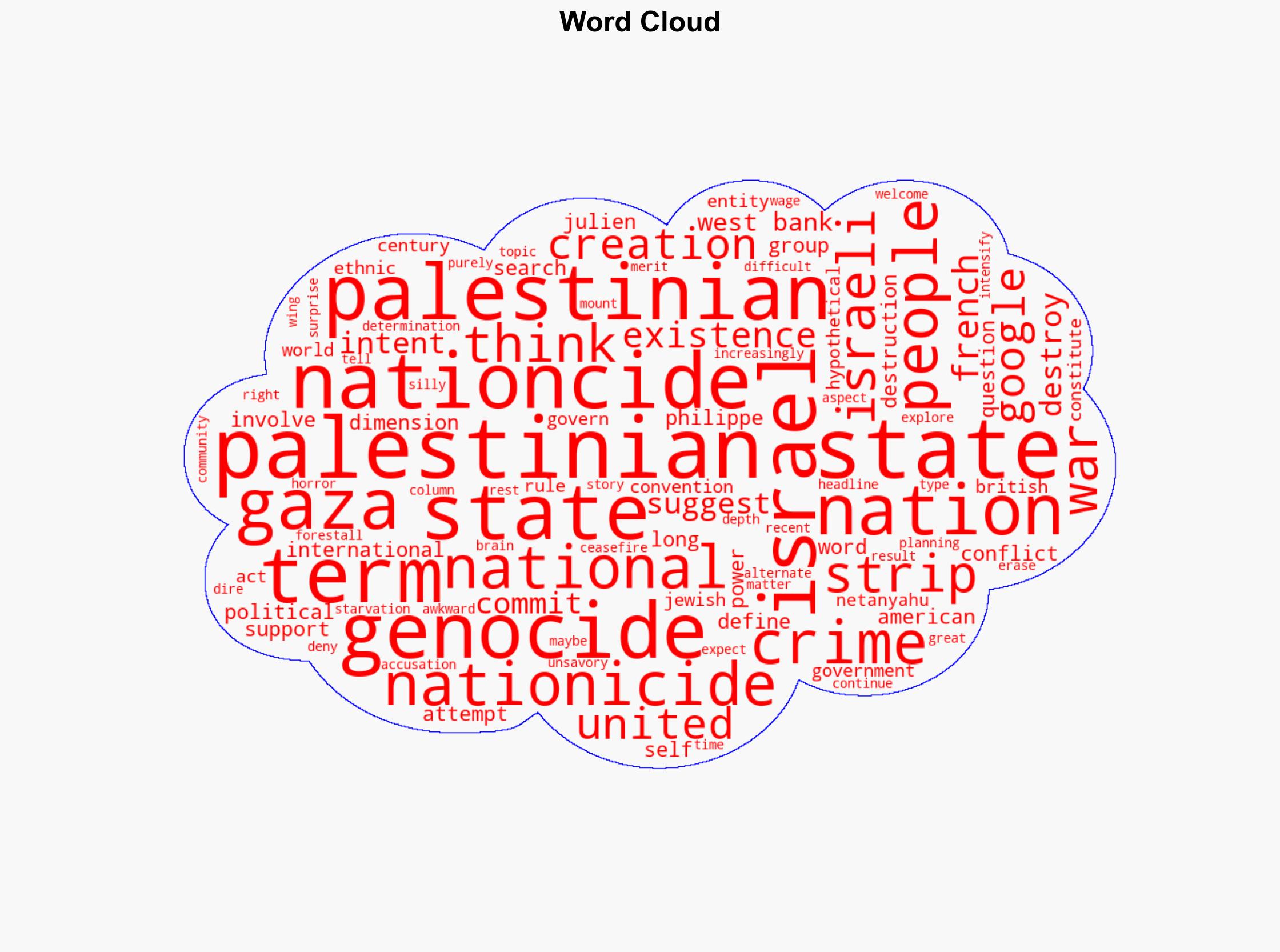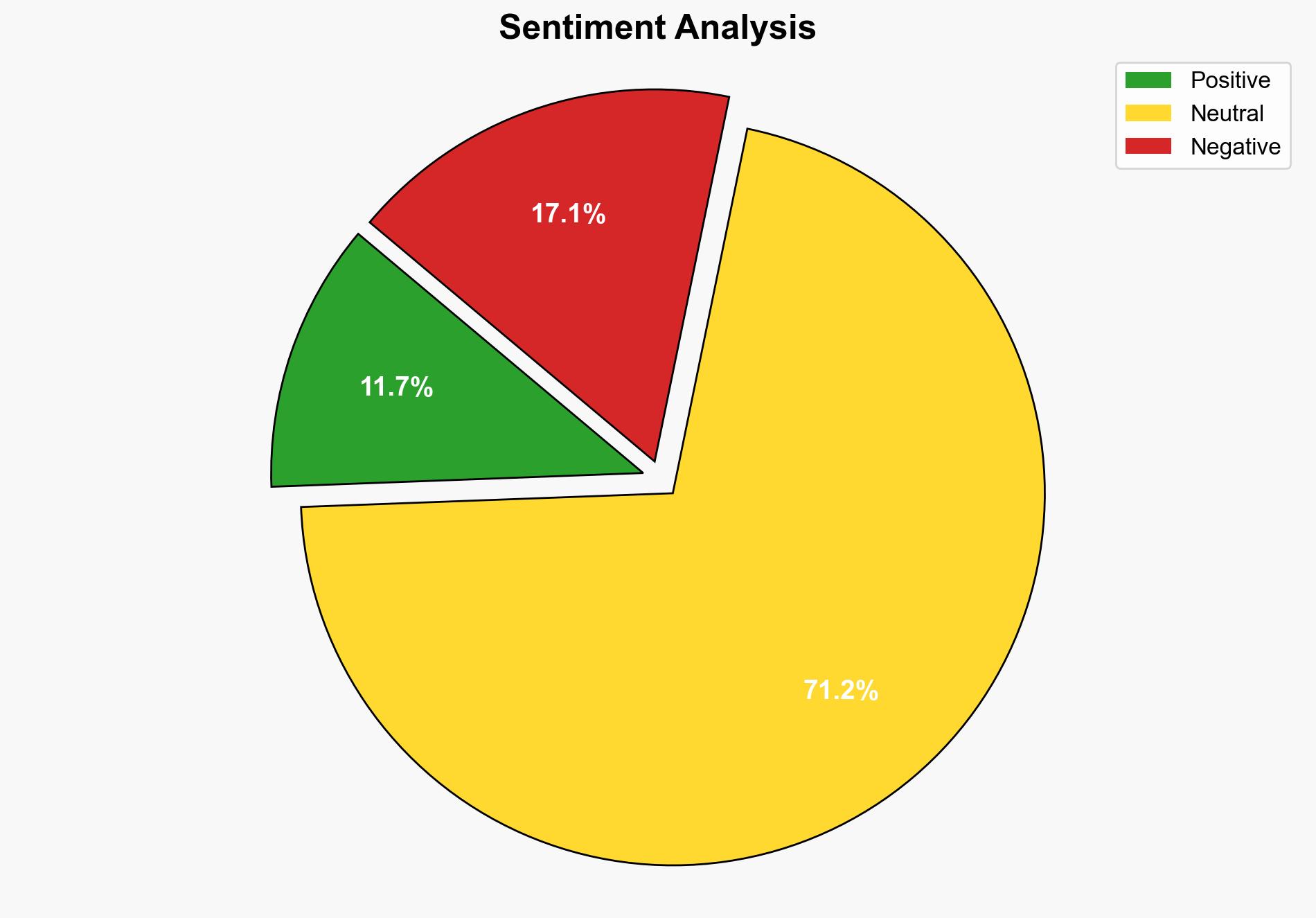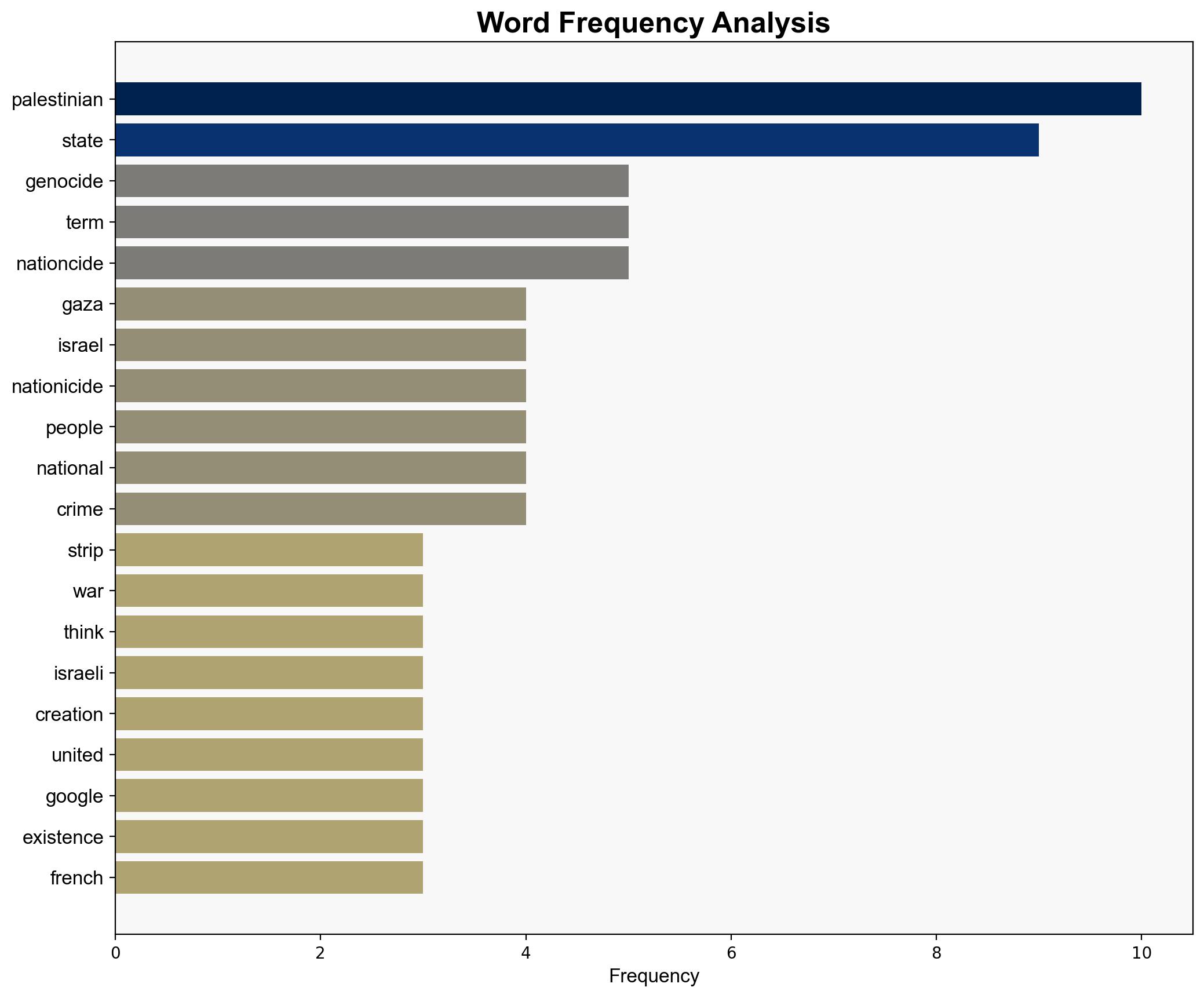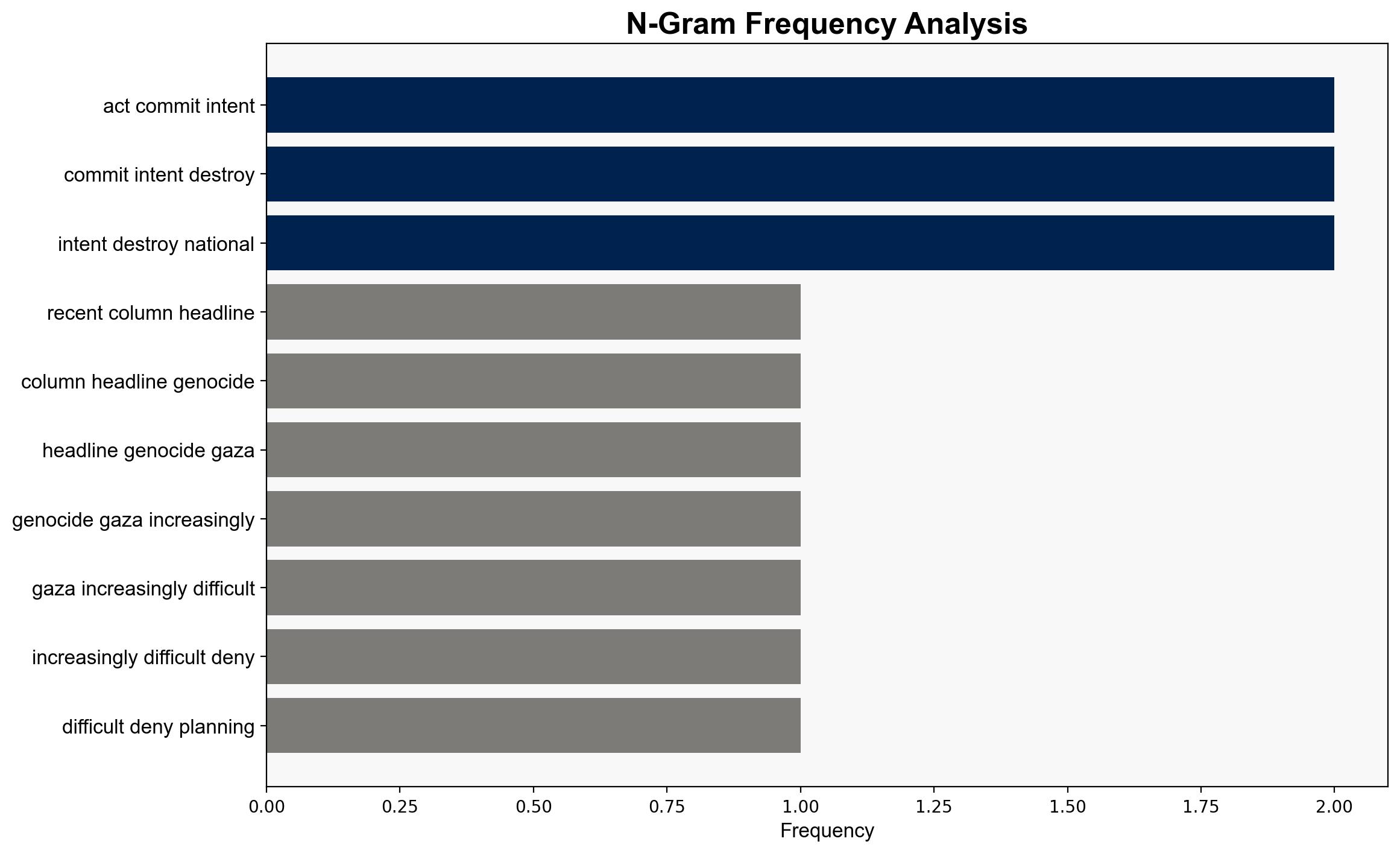The Crime Is Nationcide – The New Republic
Published on: 2025-10-19
Intelligence Report: The Crime Is Nationcide – The New Republic
1. BLUF (Bottom Line Up Front)
The analysis suggests that the term “nationcide” is being used to describe actions against the Palestinian people in Gaza, with implications of intentional destruction of a national entity. The most supported hypothesis is that there is an intentional strategy to undermine Palestinian statehood. Confidence level: Moderate. Recommended action: Increase diplomatic engagement and monitoring of the situation to prevent further escalation and address humanitarian concerns.
2. Competing Hypotheses
1. **Hypothesis A**: The actions in Gaza are part of a deliberate strategy by Israel to prevent the establishment of a Palestinian state, aligning with the concept of “nationcide.”
2. **Hypothesis B**: The actions are primarily defensive measures by Israel, without the intent of “nationcide,” aimed at neutralizing perceived threats from Gaza.
Using the Analysis of Competing Hypotheses (ACH) 2.0, Hypothesis A is better supported due to the consistent pattern of actions that undermine Palestinian governance and infrastructure, as well as statements from Israeli officials suggesting long-term strategic goals.
3. Key Assumptions and Red Flags
– **Assumptions**: Hypothesis A assumes a coordinated policy intent, while Hypothesis B assumes a reactive stance to security threats.
– **Red Flags**: Lack of transparent communication from Israeli officials regarding long-term goals in Gaza. Potential cognitive bias in interpreting defensive actions as offensive.
– **Inconsistent Data**: Discrepancies in international recognition of Palestinian statehood and its implications on the legitimacy of “nationcide” claims.
4. Implications and Strategic Risks
– **Geopolitical Risks**: Continued conflict may destabilize the region further, attracting international intervention or condemnation.
– **Economic Risks**: Prolonged conflict could lead to economic sanctions or aid withdrawal, affecting both Israeli and Palestinian economies.
– **Psychological Risks**: Escalation may fuel radicalization and recruitment by extremist groups, increasing regional insecurity.
5. Recommendations and Outlook
- Engage in multilateral diplomacy to de-escalate tensions and promote dialogue between Israeli and Palestinian authorities.
- Monitor humanitarian conditions in Gaza to provide timely aid and prevent further deterioration.
- Scenario Projections:
- Best: Peace talks lead to a ceasefire and renewed negotiations for a two-state solution.
- Worst: Escalation leads to broader regional conflict involving neighboring states.
- Most Likely: Continued low-intensity conflict with periodic escalations.
6. Key Individuals and Entities
– Benjamin Netanyahu
– Donald Trump
– Palestinian Authority
7. Thematic Tags
national security threats, geopolitical conflict, humanitarian crisis, Middle East peace process





